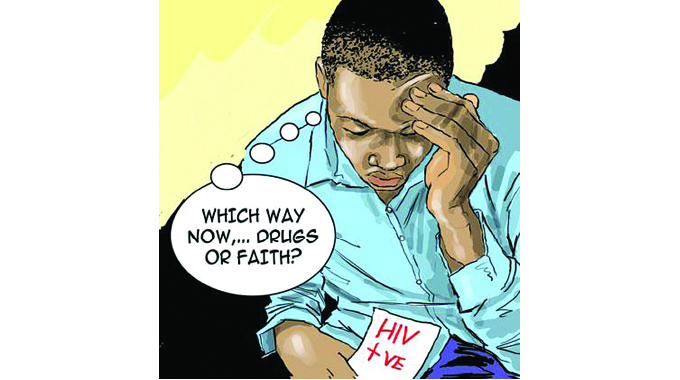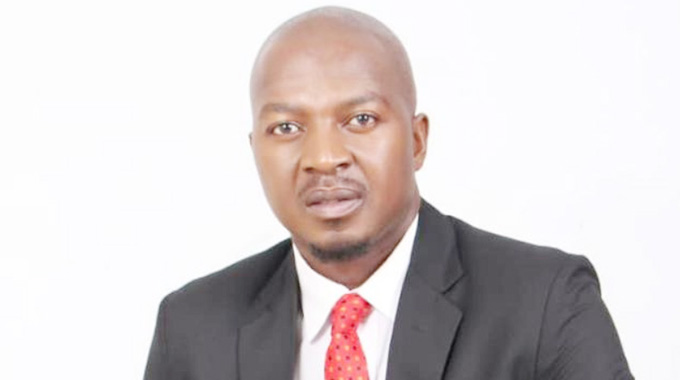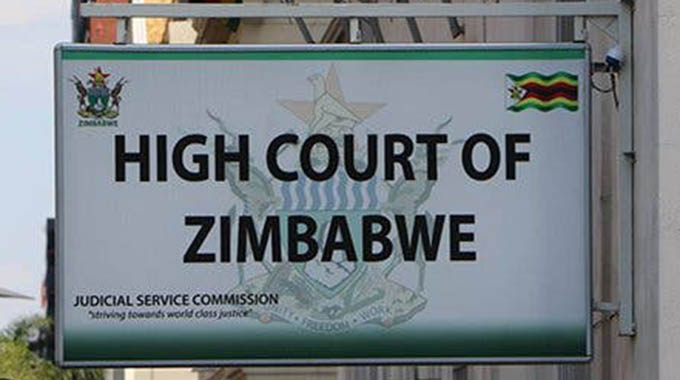Faith healers in UK milk the terminally ill

Dr Masimba Mavaza
Men of God are generally perceived to be closer to God than an average person. As such, they are expected to have and demonstrate stronger faith in matters such as healthcare and healing.
Sometimes, the thinking is that they shouldn’t fall ill and in case they do, they should get well without any external aid, such as going to the hospital for medical treatment.
So, if they advise their congregants not to take medication they are likely to be believed.
While a lot of diseases came and left, HIV has remained with us. With a lot of movements and migration, many Zimbabweans have settled in the UK and many have realised that they are terminally sick.
A number of Zimbabweans in London have died of HIV-related illness and many succumbed to cancer, diabetes and high blood pressure.
Of many of these, a large percentage has died after they stopped taking life saving drugs on the advice of their Evangelical Christian pastors.
Pastors have taken advantage of the respect they get from the church members and have started abusing their faith by claiming to be able to heal any ailment, including cancer and AIDS-related diseases.
It sounds like a very old story, but it is actually very painful.
It has always been advised that if you are one of the nearly half of UK Zimbabwean adults taking at least one regular medicine, there may come a time when you want to stop.
But if you do choose to come off medication, it’s important to do so only with the advice of your pharmacist or doctor.
There are some medicines doctors are very keen for patients to continue – especially ‘preventive’ medications such as those to control blood pressure, cholesterol and, if you have diabetes, blood sugar.
You wouldn’t notice if you stopped them, but not taking them would greatly increase your risk of complications ranging from heart attack and stroke to sight loss and amputations.
With other medications, it may be safe for you to stop, but doing so too quickly could make you feel dreadful. So be tablet savvy and stay healthy.
For those taking pain killers, it maybe good to discuss with your doctor before taking any action.
Your body produces its own natural steroids – in fact, you couldn’t live without them. However, when you’re given steroid tablets for any length of time, your body stops making so much of its own.
Side effects of stopping long-term steroids too quickly include extreme tiredness and weakness, dizziness, poor appetite and weight loss, tummy pain, sickness and diarrhoea.
The higher the dose, the more dangerous it is to stop too quickly.
Sometimes doctors prescribe short courses of steroids – for instance, for a flare-up of asthma, the lung condition COPD or the bowel conditions Crohn’s disease or ulcerative colitis, you’re likely to be given a high dose – say, 30 milligrams (mg) a day.
But as long as you’re only taking them for 7-10 days, it’s usually safe for you to stop at the end of the course without tailing off.
Stopping steroid inhalers suddenly doesn’t cause withdrawal effects – but it could lead to a flare-up of your lung condition. No pastors can make this right.
Cecilia Marange died of HIV/AIDS-related illnesses after a pastor in her evangelical pentecostal church told her that she had been healed of the HIV virus.
She was asked to bring all her medication and bin it in front of the shocked congregants as a show of faith.
The evil pastors have the verses to support their bloodletting. The churches compete to be recognised and they take it a step further and claim to have powers to heal people with HIV.?
Angela Matapi (not her real name) passed on after a well-known Zimbabwean pastor in the UK claimed that she had been healed and she could dump her medication.
What makes it so sad is that Angie was a nurse by profession. The pastor made sure he took all her earnings and savings before abandoning her in her last few days.
One wonders why people are so gullible. They are in the medical field and yet they are fooled by a Grade One dropout who claims to have “holy fire”.
Discontinuing a medication abruptly can often be associated with unpleasant side effects and worsening of symptoms based on your drug treatment, its chemistry profile, and how your drug is broken down (metabolized) and excreted from your body.
“Why is God silent while his people are killed,” asked Shanduka with pain in his eyes.
Many Zimbabweans have died after attending churches in London where they were encouraged to stop taking the anti-retroviral drugs in the belief that God would heal them and their friends, a leading HIV doctor said.
Responding to the BBC London investigation, Lord Fowler, the former Health Minister responsible for the famous Aids awareness campaign of the 1980s, condemned the practice.
“It’s just wrong, bad advice that should be confronted,” said the Tory Peer, who chaired 2011 House of Lords committee on HIV.
Elias Masakadza (48) from Newham, East London, described one case, saying: “I know of a friend who had been to a pastor. She told her to stop taking her medication, that God is a healer and has healed her.
“This lady believed it. She stopped taking her medication and she passed away.”
BBC London spoke to a second woman from East London who told of a friend who died after taking advice from her pastor who told her to stop taking her anti-retroviral drugs.
Meanwhile, the director of a leading HIV research centre in East London said she had dealt with a separate case in which a person who was HIV positive died as a result of advice from a pastor.
“I’ve only seen that once, but it has happened,” said Prof Jane Anderson, director of the Centre for the Study of Sexual Health and HIV, in Hackney. “We see patients quite often who will come having expressed the belief that if they pray frequently enough, their HIV will somehow be cured.
“We have seen people who choose not to take the tablets at all.”
Lord Fowler condemned pastors giving this advice, saying: “It’s dangerous to the public and dangerous in terms of public health.” It’s irresponsible”, suggesting pastors should instead “come off the air on it, look at things much more seriously, and not give this completely wrong advice to the patients.”
Sharon Liao and Pathan MD in their article “What happens when you stop taking medication” said: “Taking medicine is a big part of your ulcerative colitis (UC) treatment plan. But many people wind up stopping or skipping doses: Research shows that 1 in 5 people with an inflammatory bowel disease, such as UC, don’t take their meds as prescribed.”
There are many reasons why people are tempted to quit, says Aline Charabaty, MD, director of the IBD Centre at Johns Hopkins-Sibley Memorial Hospital in Washington, DC.
Taking medicine can be a hassle, or you don’t like the side effects. Or you’re in remission and feeling fine, so you think you don’t need meds anymore.
But it’s important to stick with the game plan. Drugs keep the inflammation in your colon and rectum in check. This gives it time to heal.
“When you stop medication, there’s a high chance that you’ll relapse,” Charabaty says. “The inflammation can set off a flare-up of symptoms. What’s worse, it can lead to permanent damage or death.”
Some ailments are chronic disease with no cure, says Tauseef Ali, MD, chief of gastroenterology at SSM Health St Anthony Hospital in Oklahoma City. Unlike a cut, they don’t heal and get better.
Without treatment, the inflammation comes back. That means you’ll likely have to take medications for the rest of your life. These may include anti-inflammatory drugs, immune system suppressors, and biologic therapies.
In rare cases, people who’ve been in remission for years with no signs of inflammation can try going off their medicine. But this is always done under a doctor’s care, Ali says.
You’ll need to get regular blood tests and endoscopies to check for inflammation.
The Bible is never against medical science. “Is there no balm in Gilead; is there no physician there? Why then is not the health of the daughter of my people recovered? – Jeremiah 8:22 Our Lord taught us that the sick need the physician – Luke 5:31.”
Due to religious beliefs, when some people, especially on the advice of Christian pastors fall ill, they refuse to take drugs preferring to go to their prayer houses, instead of heading for the hospital.
While no one has the right to query the stand of another in such matters, it nevertheless elicits curiosity when someone at the point of death, and who probably could have been saved by medical treatment refuses to avail himself/herself of such.
Does medicine in any way reduce one’s faith in the creator?
Recently, for instance, a pregnant woman reportedly shunned the idea of blood transfusion, which was meant to aid in her safe delivery, as she was experiencing prolonged and difficult labour.
She did this on the grounds that her faith does not permit such.
So, one cannot but ask: should believing in God stop the individual from taking medicine, going to the hospital or receiving blood transfusion?
Is availing oneself the benefits of medicine tantamount to less faith in the Lord? How far can faith carry the believer?
There is a saying that “heaven helps those who help themselves”. So, if you are sick and you want God to help you, you have to do something.
You don’t just sit down doing nothing about it and believing that God will just come and work miracle in your life. It is also a fact that God is the author of medical science.
He gave the medical know-how to human beings. So, when we have recourse to medical science, we do so in the consciousness that God Himself created it.
It does not in any way contradict or detract from our faith, if we use something that God Himself has made available for us. Opting for medication or going to the hospital does not contradict our religious stance.
Church members are encouraged to also use whatever resources are available and compatible with Christianity alongside prayers. If you go to the hospital for medical care or even take traditional medicine that is not tied to fetishism, it’s in order.
Pastor Pardon Chenjerai commented; “I would not advise anyone to do that. We run hospitals. In fact, there are a lot of Adventist hospitals around the world.”
Some people hold the religious view that it is wrong for a Christian to take medicine in any form. This is wrong.
The Bible makes it clear that God has provided medicines for the use of man.
“He causeth the grass to grow for the cattle, and herb for the service of man…” (Psalm 104:14). In Proverbs 17:22, it is written: “A merry heart doeth good LIKE A MEDICINE: but a broken spirit drieth the bones.” That faith and prayer are of great importance in the life of a Christian cannot be argued. But to depend on them without discretion and understanding of the law of God is tantamount to over-righteousness or fanaticism, which can even lead to untimely death. It was King Solomon that said: “Be not righteous over much; neither make thyself over wise: why shouldest thou destroy thyself?” – Ecclesiastes 7:16.
When Hezekiah, the king of Judah was sick and prayed for recovery, God Almighty instructed Isaiah the prophet to tell him to take a lump of figs and lay it on the boil.
“And they took and laid it on the boil, and he recovered.” (2 Kings 20:1-7). The lump of figs used to cure the boil was medicine, pure and simple.
Indeed, those who should see a physician as our Lord Jesus Christ said in Matthew 9:12 are those who are sick. And will the doctor not prescribe medicine? In the parable of the Good Samaritan, oil and wine were poured on the wounds of the man injured by robbers. These were medicines. See Luke 10:25-37.
James 5:13-16, where the exhortation is given that one who is sick should meet the elders of the church to pray for him “and the prayer of faith shall save the sick” does not in any way mean that Christians should not take medicine.
It only emphasises the power of prayer and the importance of faith such that when a Christian takes medicine, he/she believes it cannot be effective unless God, by His grace, blesses it with His healing power.








Comments